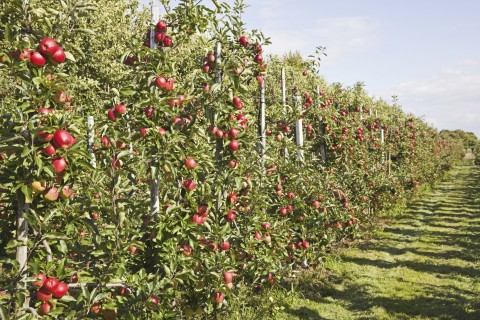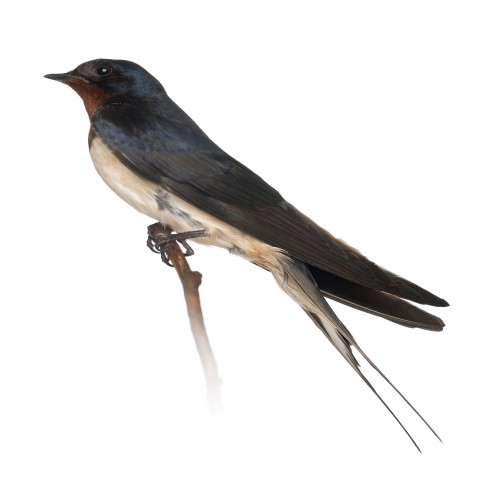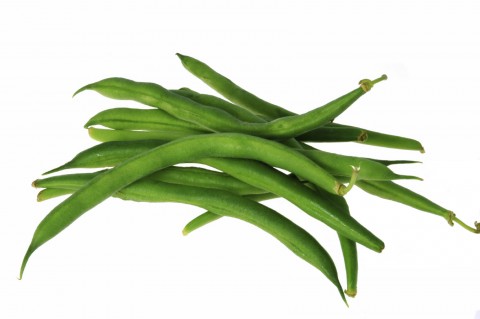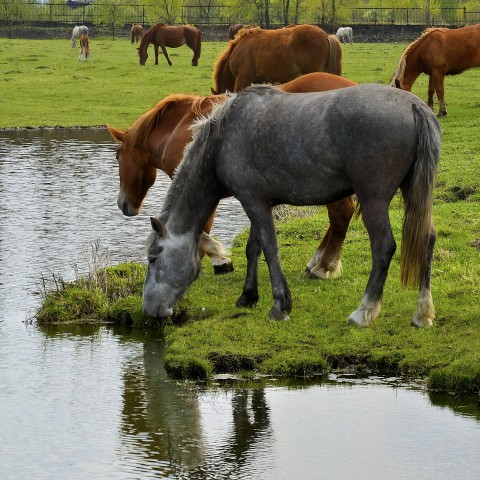
The word “proverb” (spreekwoord in Afrikaans) is derived from the Latin proverbium. Collins Dictionary defines it as a short sentence that people often quote to give advice, or one that says something about life.
Proverbs also tend to employ the same vivid imagery and metaphoric language common in children’s stories. So, perhaps they’re an adult throwback to children’s fiction—who knows?
Proverbs touch us on a very deep level, as they go beyond nationality, gender, race, religion, and time. In this way, they connect us to one another with their universal truths and wisdom. The Afrikaans proverbs I’m going to cover in this article are sure to ignite your imagination and make you feel more connected to Afrikaner culture.

Ma en dogter lees ‘n boek saam (“Mother and daughter reading a book together”)
 Table of Contents
Table of Contents
- Why Use Proverbs in Afrikaans Conversations?
- The Difference Between Proverbs and Sayings/Idioms
- Afrikaans Proverbs and Meanings with English Equivalents
- Uniquely South African Proverbs
- Learn Afrikaans Proverbs Like a Pro at AfrikaansPod101.com!
1. Why Use Proverbs in Afrikaans Conversations?
Many proverbs are conversation tools that add character to a language, almost like adding spice to food. Throw a unique Afrikaans proverb into a conversation, and you could well pass for a native speaker!
Afrikaans proverbs can typically be used in both formal and informal settings, and parents often use them to explain ethics, morals, or other profound truths to their children.
Many similar proverbs appear in different languages. This is simply because cultures have cross-pollinated over the centuries with the gradual expansion of the world’s population.
First, we’ll take a look at those Afrikaans proverbs with English equivalents, of which there are plenty. Then, I will give a few examples of very unique Afrikaans proverbs with no English equivalents or approximations I can trace. (But if you know of an English approximate, or perhaps a similar proverb in your own language, please do share with us in the comments!)
Before we start, let’s quickly look at the difference between a proverb (spreekwoord) and an idiom or saying (idioom / sêding). These two are closely related, but are not the same in usage and meaning.

2. The Difference Between Proverbs and Sayings/Idioms
This is not complicated, but on many sites, one is often confused with the other. A trait they share is the use of metaphoric language (i.e. imagery). Also, both proverbs and idioms evolve as languages evolve, so there’s rarely a single, permanent version of any specific idiom or proverb.
They differ in the following ways:
A) Afrikaanse Sêdinge / Sêgoed / Idiome (“Afrikaans Sayings / Idioms”)
- A saying always forms part of a sentence with a noun, proper noun, or pronoun that refers to a specific person, entity, and/or situation. So, idioms are not universally applicable.
- Often, different regions in South Africa have different idioms for the same thing. For instance, we have many different sayings for referring to a drunk person.
In a rural town called Moorreesburg, Western Cape Province, the locals say: Hy/sy is ganspen. (Literally: “He/she is goose pen.”)
However, in Touwsrivier (also a small town in the Western Cape), we say: Hy/sy is kiepkop. In vernacular Afrikaans, a chicken is also sometimes referred to with an onomatopoeia: kiep or kiepie. This saying is closer to what we use in Gauteng Province: Hy/sy is hoenderkop. (Literally: “He/she is chicken head.”) It’s unclear where this idiom originated, but my guess is that it alludes to the movement of a chicken’s head when it walks—it doesn’t look very stable!
- Example: Ons moes van aalmoese lewe. (“We had to live off charity.”)
Van aalmoese lewe (“living off charitable offerings”) is a Dutch-based idiom meaning that someone is living in such extreme poverty that they have to depend on charity for survival. See below how this idiomatic expression differs from a certain proverb that also uses the word aalmoese.
B) Afrikaanse Spreekwoorde (“Afrikaans Proverbs”)
- Even if it forms part of a sentence, a proverb can always stand alone as a complete sentence or statement.
- It usually expresses a universally applicable piece of wisdom or sentiment.
- Pronouns in proverbs can be adjusted to be gender-correct, but vernacularly, they’re seldom modified this way.
- Proverbs in Afrikaans tend to show less regional diversity than idioms do. They’re understood almost everywhere in the country.
- Example: Aalmoese gee verarm nie. (“Giving charitably won’t make you poor.”) This proverb reminds us that giving freely to those in dire need will not cost us too much, nor will it harm us—a universal truth.
3. Afrikaans Proverbs and Meanings with English Equivalents
Now that you’re familiar with the differences between proverbs and idioms, let’s go over the most popular and widespread proverbs in Afrikaans!
1. Die appel val nie ver van die boom af nie. / “The apple doesn’t fall far from the tree.”
Meaning:
This is also a well-known proverb in English. It states that family members tend to share the same basic nature and/or traits.
Use:
In Afrikaans, one uses this phrase to comment on any situation where a child displays the same characteristics or skills as one or both of their parents. It’s most often said in a positive sense, and it can be used for either gender.
Example Sentence:
Sy is ‘n skrywer, net soos haar pa. Die appel val nie ver van die boom af nie.
“She is a writer, just like her dad. The apple doesn’t fall far from the tree.”

Die appel val nie vêr van die boom af nie. (“The apple doesn’t fall far from the tree.”)
2. ‘n Voël verander van kleur maar nie van veer. / “A leopard doesn’t change its spots.”
Lit. Translation:
“A bird changes its color but not its feathers.”
Alternative:
‘n Jakkals verander van haar maar nie van streke nie. / “A fox changes its fur but not its tricks.”
Meaning:
This expressive proverb means that even when people appear to have changed, their basic character is likely still intact. One’s true character will always show, no matter how hard one tries to hide it. The absolute truth of this proverb is debatable, because people can and do completely change, when they must. But this usually takes great effort and is not the norm.
Use:
This proverb is mostly used when a person displays tenacious moral flaws. Picture this scene: A girl broke up with her boyfriend because he repeatedly lied to or cheated on her. The boy begged her to take him back with earnest promises to change his ways. All went well for a while, but he was soon lying and cheating again. In this instance, the proverb could be used as a comment that says it all, or it could serve as cautionary advice from a concerned parent or friend.
Example Sentence:
Wees net versigtig om weer daardie man te vertrou. ‘n Voël verander van kleur maar nie van veer.
“Just be careful trusting that man again. A leopard doesn’t change its spots.”

‘n Voël verander van kleur maar nie van veer. (Literally: “A bird changes color but not feathers.”)
3. Die skoenmaker se kinders loop kaalvoet. / “The cobbler’s children are the worst shod.”
Lit. Translation:
“The shoemaker’s/cobbler’s children walk barefoot.”
Meaning:
Like its English counterpart, this proverb refers to the rather ironic phenomenon where people who excel in their profession are sometimes unable to (or simply won’t) extend their services to their children. Think of the shoemaker whose children don’t wear good shoes (or any shoes at all). Or the car mechanic whose daughter’s vehicle always needs repairs. In the movie business, this is sometimes called “vocational irony.”
Some interpreters feel that the proverb refers to bad parenting, but I don’t agree. Unless the children are clearly in a bad way (which should then be reported to the appropriate local authorities), who really knows what is going on in another’s household?
Use:
Imagine you’re a teacher who often organizes outings for your class. One of your pupils, the son of a dentist, is repeatedly unable to join, usually because of dental problems. You could then comment on the situation using this proverb.
Example Sentence:
Die tandaarts se seun kon weereens nie saamkom op die uitstappie nie as gevolg van tandpyn. Lyk my die skoenmaker se kinders loop kaalvoet.
“The dentist’s son could not join us on the excursion, again due to a toothache. It seems the cobbler’s children are the worst shod.”

Die skoenmaker se kinders loop kaalvoet. (Literally: “The shoemaker’s children walk barefoot.”)
4. Wie nie waag nie, wen nie. / “Nothing ventured, nothing gained.”
Lit. Translation:
“Those who don’t dare, don’t win.”
Meaning:
Just like the English version, this Afrikaans proverb reminds us that nobody can expect to win or succeed in life without sometimes pushing their own boundaries. It’s an encouragement to be bold and to act despite feeling afraid.
Use:
Imagine this scenario, for instance: Your Afrikaans friend is offered a well-paid job where they’ll be expected to do work that will challenge him to up his skills. Soon after accepting the offer, however, and even before starting, he confesses to you that he wants to quit because his courage is failing. You could then say this proverb to encourage him to be more daring.
Example Sentence:
Gaan vind eers uit wat die werk behels, dalk is dit nie so moeilik as wat jy dink nie. Onthou, wie nie waag nie, wen nie.
“First go find out what the work entails; perhaps it is not as difficult as you think. Remember, nothing ventured, nothing gained.”

Wie nie waag nie, wen nie. (Literally: “Those who don’t dare, don’t win.”)
5. Een swaeltjie maak nie ‘n somer nie. / “One swallow does not make a summer.”
Meaning:
This proverb was appropriated from English and apparently first encountered in early glossaries, such as Richard Taverner’s transcription of the Latin proverbs of Erasmus (circa 1539). It alludes to the migratory return of swallows in early summer. In the olden days, when the swallows returned, people saw it as a sign that summer had started. However, sometimes there were “false alarms,” typically when only one swallow was spotted. The proverb came to mean that a single good sign doesn’t necessarily indicate a trend.
Use:
It’s used to caution against blind or excessive optimism after a windfall. Or, as Erasmus put it: “It is not one good qualitie that maketh a man good.”
Example Sentence:
Ons het goeie verkope gehad hierdie week, maar onthou—een swaeltjie maak nie ‘n somer nie. Dit gaan tyd neem vir die besigheid om regtig te floreer.
“We made good sales this week, but remember—one swallow doesn’t make a summer. It will take time for the business to really flourish.”

Een swaeltjie maak nie ‘n somer nie. (“One swallow does not make a summer.”)
6. Wat jy saai sal jy maai. / “As you sow, so you shall reap.”
Meaning:
This well-known proverb is based on the hermetic principle that what you think, say, or do always returns to you in some form or another. The principle is similar in all religious traditions, but the proverb itself is found in the Christian Bible.
Use:
Just as in English, this proverb is used to comment on or warn about one’s behavior. Picture, for instance, that you find out your teenage son is considering cheating on his girlfriend. You might have a talk with him about morals and ethics, gently reminding him that what he sows, he will eventually reap.
Example Sentence:
Moenie ‘n verneuker wees nie, my kind, dit maak mense seer. En onthou, wat jy saai sal jy maai. Dis hoe die lewe werk.
“Don’t be a cheat, my child, it hurts people. And remember, as you sow, so you shall reap. Life works that way.”

Wat jy saai sal jy maai. (“As you sow, so you shall reap.”)
7. Skoonheid vergaan maar deug bly staan. / Approximate: “Beauty is only skin-deep.”
Lit. Translation:
“Beauty fades but virtue endures.”
Meaning:
This proverb sings the praises of inner virtue over outer appearance, or the value of inner, more enduring character qualities over the visible, transient ones.
Use:
In practical terms, the proverb is used as a comment, warning, or advice when a person is blinded by the outer beauty of someone or something. This commonly happens when we become infatuated with a person or an object!
For instance, imagine you’re a car aficionado and a friend asks for your advice about buying a new car. He’s smitten by the latest body style of a certain sports car, and you realize that he wants to purchase it impulsively. However, as the expert, you know that it won’t be a good buy for him. That would be the perfect time to use this proverb.
In Afrikaans, deug (“virtue”) is sometimes replaced with liefde (“love”), in which case it extols the virtues of choosing a life partner mostly for their inner beauty.
Example Sentence:
Daardie is ‘n mooi motorkar, maar dis nie ‘n baie praktiese een nie. Onthou, skoonheid vergaan maar deug bly staan!
“That is a nice-looking motorcar, but it’s not a very practical one. Remember, beauty fades but virtue endures!”

Skoonheid vergaan maar deug bly staan. (“Beauty disappears but virtue remains.”)
8. Haastige hond verbrand sy mond. / Approximates: “Haste makes waste.” AND “More haste, less speed.”
Lit. Translation:
“The hasty dog burns its mouth.”
Meaning:
This is a reminder to not hurry things unnecessarily, as you can end up spoiling them for yourself. It’s similar to the English proverb that warns against doing jobs hastily, because this could cause mistakes and unnecessary loss.
Use:
This one is often used by parents during mealtime! In this case, it means exactly what it says: don’t eat too fast or the hot food will burn your mouth. It’s often used in other contexts too. For instance: your Afrikaans friend has booked a holiday weekend at a beautiful location and is tremendously eager to be off. She announces that she’s going to drive there at top speed, which you know will be unsafe. You might decide to use this proverb to remind her to drive at a sensible speed.
Example Sentence:
Daar is gewoonlik verkeerskameras op daardie pad. En dit reën, so oppas. Haastige hond verbrand sy mond.
“There are usually traffic cameras on that road. And it’s raining too, so be careful. The hasty dog burns its mouth.”

Haastige hond verbrand sy mond. (“The hasty dog burns its mouth.”)
9. Aanhouer wen. / Approximate: “Practice makes perfect.”
Lit. Translation:
“One who persists wins.”
Meaning:
This proverb encourages us not to give up on our goals or to quit working toward them when the going gets tough. It reminds us that it’s the tenacious person who will eventually get what they want.
Use:
This is one of the best Afrikaans proverbs to use when someone feels discouraged in their endeavors, or if they just don’t feel like continuing. It’s similar to the English approximate in that it encourages persistence, albeit with a different emphasis. Literally, Aanhouer wen encourages someone who feels discouraged and tired by their efforts to keep going, while the English proverb encourages persistence in order to reach a high standard.
Imagine your daughter wants to improve her performance in athletics, but feels discouraged by her slow progress and therefore wants to quit practicing. That’s when you would give her a hug and remind her (with this Afrikaans proverb) that persistence will bear fruit.
Example Sentence:
Ja, oefening is nie altyd lekker nie, my kind, maar onthou—aanhouer wen.
“Yes, practice is not always pleasant, my child, but remember—the one who persists wins.”

Aanhouer wen. (“One who persists, wins.)
10. Approximate: “Don’t put off until tomorrow what can be done today.”
Lit. Translation:
“From procrastination comes cancelation.”
Meaning:
This proverb is a warning against procrastination. We’re all familiar with the dynamic—the longer you put off doing something, the more likely you are not to do it at all!
Use:
The proverb is pretty straightforward and can be used in any situation where this reminder is appropriate. For instance—New Year’s resolutions! Who hasn’t promised themselves that they will lose weight, spruce up the garden, or write a book, only to reach the end of that year without having reached any goals due to procrastination? Use this proverb to remind yourself or someone else why it’s better to ditch this bad habit.
Example Sentence:
Laat ek tog gaan oefen. Want regtig, van uitstel kom afstel!
“Let me go and exercise. Because really, from procrastination comes cancelation.”

Van uitstel kom afstel. (Literally: “From procrastination comes cancelation.”
11. Elke hond kry sy dag. / “Every dog gets its day.”
Meaning:
According to the Collins Dictionary, this proverb means that everyone will be successful or lucky at some point in their life. It has interesting origins, not as benevolent as the dictionary definition suggests. The proverb alludes to a pack of dogs that was allegedly loosed upon Greek playwright Euripides by a vengeful enemy in 405 BCE. The dogs mauled and killed the writer. The proverb came to mean that even the lowliest person will eventually get their revenge over their most powerful enemy.
Use:
It’s often used when we want to comfort a friend who’s down on their luck, whether in serious or trivial matters. For instance, if someone has lost a competition or didn’t get a job they applied for, you could use this proverb to cheer them up. It’s also sometimes used to say that a person will be avenged if they suffer something they didn’t deserve, such as when they’re unfairly fired or implicated in a crime they didn’t commit.
Example Sentence:
Hy voel baie kwaad en verneder oor hy uit die span geskop is na vals beweringe van dwelmgebruik. Maar hy troos homself met hierdie wete—elke hond kry sy dag.
“He feels very angry and humiliated because he was kicked off the team due to false allegations of drug use. But he comforts himself with this thought—every dog gets its day.”

Elke hond kry sy dag. (“Every dog gets its day.”)
12. Elke boontjie kry sy loontjie. / “You get what you deserve.”
Lit. Translation:
“Every small bean gets his little due.”
Meaning:
If the literal translation doesn’t make much sense, that’s because this popular proverb is based on old Afrikaans folklore. The story is called Little Bean, Straw, and Ember and it tells us that one day, these three friends went for a walk in nature. They reached a stream to cross, and Straw generously offered to lie down and form a bridge that the other two could safely use. Little Bean went first and crossed the stream easily. Unfortunately, Ember burnt Straw, so both of them collapsed into the stream. Little Bean found this hilarious and laughed uncontrollably. In fact, he laughed so hard that he popped open! The moral of the story is that he got his due for mocking his friends in their misery.
Use:
This is mostly used as a comment when we notice that someone, according to our judgment, gets what they deserve. For instance, a large company is exposed for poor environmental health and safety practices. At first, it seems they’re getting away with it, but then you read in the newspaper that someone has sued them and won a large settlement. This is when you could mutter this proverb to yourself or air it in a conversation to express your opinion. You could also use it to comfort a friend who has fallen victim to unfair treatment.
Example Sentence:
Toemaar, ou pêl, moenie te sleg voel nie. Elke boontjie kry sy loontjie.
“Don’t worry, old pal, and don’t feel too bad. They will get what they deserve.”
Note:
In this case, the English version is closer to an idiom than a proverb because the pronoun “you” is often replaced with other pronouns or nouns.

Elke boontjie kry sy loontjie. (Literally: “Every bean gets his dues.”)
13. Die gras lyk altyd groener aan die ander kant van die draad. / “The grass is always greener on the other side of the fence.”
Meaning:
This well-known proverb refers to our tendency to compare our situation with others’, and then conclude that they have it better than we do, even when they really don’t. It’s not so much envy as it is the assumption that we’re worse off than others, making us wish we were on their side of the proverbial fence.
Use:
Picture this scenario: Your Afrikaans colleague is not terribly unhappy at work, but she’s restless and bored in your department. She’s always looking longingly at colleagues in a different department who work outside of the office, thinking that they seem to have a better time. Therefore, she wants to ask for a transfer. However, you know that all is not as it seems in the other department, so you use this proverb to warn her against taking rash action.
Example Sentence:
Die gras lyk altyd groener aan die ander kant van die draad, Sandra. Jy moet mooi dink oor ‘n oorplasing.
“The grass is always greener on the other side of the fence, Sandra. You need to think very carefully about a transfer.”

Die gras lyk altyd groener aan die ander kant van die draad. (“The grass is always greener on the other side of the fence.”)
14. Oos, wes, tuis bes. / “There’s no place like home.”
Lit. Translation:
“East, west, home is best.”
Meaning:
This proverb reminds us of the joys of having a good home. It implies that, no matter how far and wide we travel, nothing compares to being home, a place we love returning to.
Use:
It’s used to describe a feeling of satisfaction upon arriving home after a long holiday or trip. It can also refer to the place where you were raised, or any place you fondly recall as “home.” You could use this proverb with good effect if, for instance, you were invited to a class reunion in your hometown and were asked to give a short speech. It would make a great opening line!
Example Sentence:
Goeienaand, Klasmaats van ’88. Wat kan ek sê—oos, wes, tuis bes.
“Good evening, Class of ’88. What can I say—east, west, home is best.”

Oos, wes, tuis bes. (Literally: “East, west, home best.”)
15. Waar daar ‘n rokie trek, is daar ‘n vuurtjie. / “Where there’s smoke, there’s fire.”
Meaning:
This is another well-known proverb, and it means that if rumors are circulating about someone or something, there’s always some truth to them.
Use:
The absolute truth of this proverb is debatable, because really—do we ever get the full picture via rumors? We love to gossip, unfortunately, which distorts or takes away from the truth. So, use this proverb sparingly if you’re dealing with negative stories.
The proverb can be used positively too, though. For instance, your Afrikaans friend whispers that she heard along the grapevine that a mutual friend has gotten engaged, but she’s not sure. If you don’t know either, this proverb could be a good reply, accompanied by a happy wink.
Example Sentence:
Ek weet nie, maar jy weet mos hoe die spreekwoord gaan—waar daar ‘n rokie trek, is daar ‘n vuurtjie.
“I don’t know either, but you know what the proverb says—where there’s smoke, there’s fire.”

Waar daar ‘n rokie trek, is daar ‘n vuurtjie. (“Where there’s smoke, there’s fire.”)
16. Jy kan ‘n perd na die water toe lei maar jy kan hom nie maak drink nie. / “You can lead a horse to the water, but you can’t make it drink.”
Meaning:
This one means that guidance has its limits, and that you cannot force anyone to take an opportunity or advice offered them.
Use:
It’s mostly used as a comment during conversation. For instance: Your friend was looking for a specific garden tool and you told him which shop stocks them. Later you hear that he has not found the tool, but he didn’t take your advice either. You could then use this proverb as a remark.
Example Sentence:
Ek het hom vertel waar daardie gereedskap te koop is. Ag wel, jy kan ‘n perd na die water toe lei maar jy kan hom nie maak drink nie.
“I told him where those tools are sold. Ah well, you can lead a horse to the water, but you can’t make it drink.”

Jy kan ‘n perd na die water toe lei, maar jy kan dit nie maak drink nie. (“One can lead a horse to the water, but you can’t make it drink.”)
17. Wanneer die son sak in die weste is die luiaard op sy beste. / Approximates: “A young man idle, an old man needy.” OR “A lazy youth, a lousy old age.”
Lit. Translation:
“When the sun sets in the west, the lazy bum is at his best.”
Meaning:
This is a reference to dusk, which signals the end of the day—supposedly a lazy person’s favorite time of day, because now they can rest legitimately. Of course, it’s the end of work for many people.
Use:
Parents use this proverb to teach or warn their children not to be lazy. In conversation, it’s a reference to idleness or laziness—oftentimes our own, even if rest is well-deserved! For instance, if you feel exceptionally tired after hard work and just want to stretch out in front of the TV with a glass of wine, you could exclaim this proverb with a smile to mildly deprecate yourself.
Example Sentence:
Ek het nie lus om kos te maak vanaand nie; gee my net ‘n goeie fliek en wyn! As die son sak in die weste, is die luiaard op sy beste.
“I don’t feel like making supper tonight; just give me a good movie and wine! When the sun sets in the west, the lazy person is at his best!”

Wanneer die son sak in die weste is die luiaard op sy beste. (“When the sun sets in the west, the lazy bum is at his best.”)
18. Die oggendstond het goud in die mond. / Approximate: “The early bird catches the worm.”
Lit. Translation:
“The break of dawn has gold in its mouth.”
Meaning:
This personification of dawn is the antidote to the laziness referenced in the previous proverb, as it extolls the virtues of getting up early for work. The reasoning is that this will help you perform better, because most people tend to feel more energetic and motivated in the morning—gold. If you get up early, you’ll also have time to do more work—more gold!
Use:
It’s used as a comment to remind us of the above. If, for instance, a manager wants to motivate his staff to come in earlier for work on a specific day, he might use this proverb.
Example Sentence:
Waarom begin ons so vroeg Maandagoggend? Oggendstond het goud in die mond, Kollega.
“Why are we starting so early on Monday morning? Break of dawn has gold in its mouth, my colleague.”

Oggendstond het goud in die mond. (Literally: “Break of dawn has gold it its mouth.”)
19. Goedkoop koop is duurkoop. / “If you buy cheaply, you pay dearly.”
Meaning:
This proverb warns against the pitfalls of shopping like a miser, unless you’re very sure that you’re getting reasonable quality. We tend to get what we pay for! This is not always true, though; not all inexpensive products and services are of poor quality, nor does ‘expensive’ necessarily translate to ‘excellent quality.’ But, in general, a dodgy purchase could mean you’ll soon have to replace it with a better one, or pay for repairs! This would then cost you a lot more than if you’d been less stingy in the first place.
Use:
The proverb is often used as a warning when someone is about to make a bad purchase to save money. Imagine this scenario: Your friend needs a new cell phone, but she’s saving for a vacation and therefore doesn’t want to buy her preferred (but expensive) brand. Instead, she’s considering another, much cheaper but unknown and slightly suspect brand. In this case, you could use this line to caution her.
Example Sentence:
Daardie foon lyk aanloklik, maar oppas. Goedkoop koop is duurkoop.
“That phone looks appealing, but beware. If you buy cheaply, you pay dearly.”

Goedkoop koop is duur koop. (“If you buy cheaply, you pay dearly.”)
20. Honger is die beste kok. / “Hunger is the best sauce.”
Lit. Translation:
“Hunger is the best cook.”
Meaning:
This proverb means that if a person is hungry, they’re less likely to be finicky about the food they eat.
Use:
It’s often used as a playful comment when children with a difficult palate eat all their food because they’re hungry. Imagine being grateful that your offspring is so hungry after a day of energetic play that, for once, they don’t complain about what’s on their plates! That’s when you would use this proverb with a smile.
Example Sentence:
Wel, dit wys net—honger is die beste kok!
Literally: “Well, this just shows—hunger is the best cook!”

Honger is die beste kok. (“Hunger is the best chef.”)
21. ‘n Halwe eier is beter as ‘n leë dop. / Approximate: “Better an egg today than a hen tomorrow.”
Lit. Translation:
“Half an egg is better than an empty shell.”
Meaning:
This Dutch-derived proverb advises that sometimes, it’s better to cut your losses and take what you get rather than not getting anything. It doesn’t mean exactly the same thing as its English approximate, which advises that sometimes it’s wiser to take a sure thing today than to gamble on a better thing tomorrow. The Afrikaans proverb is more explicit about why—taking a gamble means you could end up with something worthless!
Use:
Imagine this scenario: Your friend has booked an exclusive sea holiday for three weeks, and he’s been looking forward to it very much. However, before he’s due to leave, the booking agent calls and admits to having made a big mistake that reduces your friend’s holiday period by half. He decides not to shop for other holiday packages at such short notice, though, because the amended booking is now offered to him at a greatly discounted price. In your conversation on the topic, he uses this proverb to explain his decision.
Example Sentence:
Dis nie ideaal nie maar dit is steeds ‘n wegkomkans en ek kry darem groot afslag. ‘n Halwe eier is beter as ‘n lëe dop.
“It’s not ideal, but it is still a getaway and I am getting a large discount. Half an egg is better than an empty shell.”

‘n Halwe eier is beter as a leë dop. (“Half an egg is better than an empty shell.”)
4. Uniquely South African Proverbs
Some proverbs are unique to a language, and Afrikaans has a few great, very expressive ones. Here are a few Afrikaans proverbs and sayings you won’t find in English!
22. Stille waters, diepe grond—onder draai die duiwel rond.
Lit. Translation:
“Still waters, deep ground—underneath (the water) the devil circles round.”
Meaning:
This means that a demure, coy demeanor, especially in a group, can be misleading and hide a naughty or suspect character. There’s no easily traceable approximate in English, and it’s noteworthy that the Afrikaans proverb doesn’t mean the same as “Still waters run deep.” The latter implies that a quiet manner sometimes hides a passionate or profound nature, whereas the Afrikaans version suggests that a very quiet, demure behavior is suspect!
Use:
This proverb is most often used in jest to tease shy people. For instance, your new secretary rarely speaks during meetings or work-related social events. This could be a good line to tease her with if you want to draw her out and help her relax.
It’s sometimes also used as a comment when someone, regularly considered shy and proper, suddenly acts wildly out of character, or is at the center of a controversy or scandal. Or, it can serve to caution a friend if you feel they are dealing with a seemingly decent but definitely suspect person.
Example Sentence:
Hoe praat jy dan so min, Rita? Jy weet wat die spreekwoord sê: Stille waters, diepe grond—onder draai die duiwel rond!
“Why don’t you talk more, Rita? You know what the proverb says: Still waters, deep ground—underneath (the water) the devil circles round!”
23. Agteros kom ook in die kraal.
Lit. Translation:
“The ox bringing up the rear also gets into the kraal.”
Meaning:
Even those lagging behind eventually reach their goal. The proverb is also sometimes a kind reminder that no one is a complete loser in every area of life.
Use:
This is used as an encouraging comment when, in any situation, you see someone struggling to keep up with the group, but you have confidence that they’ll eventually make it. Or, use it when they do catch up! For instance, your family goes hiking, but your overweight son is battling a bit on the trail, so he keeps lagging behind. Eventually, he catches up with everybody else. You can then use this proverb to congratulate him, together with a huge smile and a cool drink!
Example Sentence:
Aaah, kyk wie is hier! Agteros kom ook in die kraal—geluk, Boet!
“Aaah, look who’s here! The ox bringing up the rear also gets into the kraal—congratulations, Boet!”
Note:
Boet is a popular and casual nickname, close in meaning to the English slang term “Bro.” The female equivalent is Sus, used the same way as the English “Sis.” It’s not exclusively used among family, but Afrikaans parents like calling their offspring Boet or Sus.

Oulap se rooi maak mooi. (“A penny’s red makes pretty.”)
24. Oulap se rooi maak mooi.
Lit. Translation:
“A penny’s red makes pretty.”
Meaning:
Oulap is an old Afrikaans word for a penny, which is a unit of currency (low in value) used in some Western countries. In South Africa, the penny is no longer used as a monetary unit, but the proverb endures. It means that great improvement can be made with only a small adjustment, specifically regarding appearance.
Use:
Use this proverb as a compliment or comment in any appropriate situation. It’s very often used to compliment or refer to a woman who looks better with a little bit of makeup on. It’s also used when something, such as a room, looks prettier after colorful items (oftentimes red ones) have been added.
Example Sentence:
Sy lyk baie goed met daardie lipstiffie aan. Oulap se rooi maak mooi!
“She looks very good with that lipstick. A penny’s red makes pretty!”
25. Die deler is so goed soos die steler.
Lit. Translation:
“The one who shares in the loot is the same as the thief.”
Note:
In Afrikaans, the adjectival phrase, so goed soos, has two meanings: “as good as” and “the same as.”
Meaning:
This proverb reminds us that if we are aware of a criminal act but consciously choose to profit from it anyway, we are morally as guilty as the person who committed the crime.
Use:
It’s often used as a teaching tool by parents and teachers, or to comment on any situation where this truth is applicable. Suppose you find your five-year-old daughter enjoying mysteriously obtained candy with her friend. It turns out that the friend had nicked the candy from the local supermarket. Upon discovering this, you could use this proverb as a teaching tool during a very stern conversation with both about the criminality of thievery!
Example Sentence:
Die deler is so goed soos die steler, my kind. Jy kon vir Theo gesê het om die lekkergoed te gaan teruggee; jy moes nie saam geëet nie! Dis verkeerd, ons maak nie so nie.
“The one who shares in the loot is the same as the thief, my child. You could have told Theo to return the candy, and not have shared it with him! That’s wrong, we don’t do that.”

Jakkals trou met Wolf se vrou. (“Jackal marries Wolf’s wife.”)
26. Jakkals trou met Wolf se vrou. / Lit. “Jackal marries Wolf’s wife.”
Meaning:
In South Africa, we often comment with this proverb during a so-called sunshower. This occurs when it rains while the sun is not behind the clouds, and in South African English, we call this phenomenon a Monkey’s Wedding. However, few know what this proverb really means. For this, we again have to look at an Afrikaans fable, this one featuring Jakkals (“Jackal”) and Wolf (“Wolf”) as main characters.
In South African folklore, Wolf was Jackal’s uncle, and he and his pretty wife were also Jackal’s godparents. Then, Jackal fell in love with his godmother and proceeded to woo her, which was improper as it broke the unspoken societal laws of the bush. A nephew and a godmother were two things that just didn’t belong together—similar to the pairing of sunshine and rain, which almost appears unnatural. So, originally, this proverb referred to anything that went strongly against the societal norms of the time.
Use:
Its original use is completely outdated in modern, vernacular Afrikaans. In fact, I have never heard it being used this way. It’s still a popular comment when a sunshower takes place, though.
Example Sentence:
Kyk buitekant! Jakkals trou met Wolf se vrou.
“Look outside! It’s a Monkey’s Wedding.”

Goeie wyn het nie ‘n krans nodig nie. (“Good wine doesn’t require a wreath.”)
27. Goeie wyn het nie ‘n krans nodig nie.
Lit. Meaning:
“Good wine doesn’t require a wreath.”
Meaning:
This proverb means that quality is self-evident; it doesn’t need to be praised or advertised. It’s apparently derived from a time when it was customary for travelers’ lodges to hang a wreath outside their doors to indicate the availability of wine. Over time, the places with good wine became so well-known and popular that they didn’t need to hang out a wreath any longer.
Use:
This is a rarely used proverb, mostly used to comment on excellent food or drink presented in a simple style or in a laid-back, unassuming setting. Imagine, for instance, you’re with friends in a low-budget restaurant where you get served a particularly superb wine. If someone mentions their surprise over this, you could comment with this proverb.
Example Sentence:
Ja, hierdie is ‘n besondere wyn in ‘n onwaarskynlike plek. Maar dis soos hulle sê: goeie wyn het nie ‘n krans nodig nie.
“Yes, it’s an exceptional wine in an unlikely place. But, as they say: good wine doesn’t need a wreath.”
28. Die kok is verlief.
Lit. Meaning:
“The cook is in love.”
Meaning:
The proverb originated when people were served food that was too salty. In modern Afrikaans, however, it refers to any slightly botched dish. The inference is that the cook must have been distracted because they’re in love, which is why they made mistakes while cooking!
Use:
Use this as a lighthearted comment during a meal if there’s clearly something wrong with the food, but you don’t wish to make a big fuss of it.
Example Sentence:
Ja, die kok is verlief, dis duidelik. Maar dis nie ‘n probleem nie, die kos smaak nie te sleg nie!
“Yes, the cook is in love, that’s clear. But it’s not a problem, the food doesn’t taste too bad!”

Elkeen dink sy uil is ‘n valk. (“Everyone sees his owl as a falcon.”)
29. Elkeen dink sy uil is ‘n valk.
Lit. Translation:
“Everyone sees his owl as a falcon.”
Meaning:
This proverb means that parents want to see their children only through rose-colored lenses, probably endowing them with characteristics they don’t really have. For instance, owls can fly, but not as high as falcons do. They’re also shy night-prowlers, whereas most falcons soar during the day.
Use:
This is often a self-deprecating comment parents make when they notice they’ve expected too much of their offspring. However, unless you’re very close to the parents, never use this proverb sarcastically or to describe children’s lesser accomplishments—the parents may never speak to you again!
Example Sentence:
Elkeen dink sy uil is ‘n valk, nè? Maar ek is steeds trots op my uiltjie, sy het tweede gekom in die kompetisie.
“Everyone sees their owl as a falcon, don’t they? But I am still proud of my owlet; she came second in the competition.”
30. Vat jou goed en trek, Ferreira.
Lit. Translation:
“Take your stuff and leave, Ferreira.”
Meaning:
This proverb commands that you “take your stuff and leave,” simple as that! It has an interesting, if rather cruel, backstory dating back to 1872 on a wealthy Western Cape Province farm close to Somerset West. The farm belonged to Willem Adriaan Van Aardt, who had a daughter called Ada. Ada, a music student, was a vivacious girl known for her fine sense of humor and excellent singing voice. Annie Malony was her piano teacher. The two were firm friends and were always called upon at social gatherings to provide musical entertainment.
By age 17, Ada was extremely popular with everyone in the area and obviously had many suitors. One of the most persistent was Jannie Ferreira, son of neighboring farmer Mr. Stephanus Ferreira. Jannie had a birth defect (an ungainly gait), but this didn’t stop him from pestering the girl. He clearly didn’t want to get the hint that she was not interested in a relationship with him.
Out of frustration with his obtuseness, Ada started penning down her feelings in verse, including the line: Vat jou goed en trek, Ferreira. (“Take your stuff and leave, Ferreira.”) She showed her writings to Annie, who immediately set it to a catchy polka tune.
At the next large social gathering, to which Jannie was also invited, the two performed the song together. After that evening, Jannie stopped visiting her—he’d finally gotten the message. However, the tune was so infectious that it quickly became popular in the region, and it later spread to all parts of the country. To this day, it’s a well-loved folk tune of the Afrikaans people; you can listen to it here.
Use:
This proverb is most often used as a comment, or to tell someone to leave in a jocular manner. Or you could say it to mean “Get lost!” For instance, you and your friends are discussing the COVID-19 virus. You could then use this proverb to indicate you wish the virus would leave.
Example Sentence:
Gelukkig het ons vinnig entstof ontwikkel en kon ons vir die virus sê, vat jou goed en trek, Ferreira!
“Fortunately, we quickly developed a vaccine and could say to the virus, take your stuff and leave, Ferreira!”

As is verbrande hout. (“Ash is burned wood.”)
31. As is verbrande hout.
Lit. Translation:
“Ash is burned wood.”
Meaning:
As has two meanings in Afrikaans: “burned wood” and the conjunction “if.” The proverb literally clarifies which as you’re talking about.
Use:
It’s most often used in reply to a worry pot who always makes suppositions or raises objections, usually starting their sentences with As … (“If …”) or Maar wat as … (“But what if …”). Using this proverb, you indicate to them that there’s no way of telling if their fears are going to materialize, but that it’s reasonable to expect the best outcome. Ergo, they can stop worrying! Use it with a friendly tone and a smile, not as a sharp retort.
Example Sentence:
Ja Marie, en as is verbrande hout. Ons het seker gemaak die erf is veilig vir kinders, Vriendin, so jy kan maar ophou bekommerd wees.
“Yes, Marie, and ‘as is verbrande hout.’ We made sure the yard is safe for children, my friend; you can stop worrying.”
5. Learn Afrikaans Proverbs Like a Pro at AfrikaansPod101.com!
Which of these Afrikaans proverbs resonate with you the most, and why? Let us know in the comments!
While learning these proverbs in Afrikaans will certainly impress the locals, there’s a lot more to discover about the language and culture of the Afrikaner people.
At AfrikaansPod101.com, we can help you understand Afrikaans easily with our hundreds of recorded videos, our podcast, these vocabulary lists, and more. With our help, you’ll be able to use the proverbs correctly and speak like a native in no time!
Also, gain the skills you need to decipher Afrikaans proverbs yourself with the multiple tools available to you upon subscription, such as the Afrikaans Key Phrase List and the Afrikaans Core 100 Word List. Also, keep your Afrikaans online dictionary close for easy translation!
If Afrikaans vernacular is important to you, then take a look at the following pages as well:
- The Best Afrikaans Internet Slang and How to Use it!
- How To Say “Hello” in Afrikaans Like a Native Speaker!
- How To Say “Thank You” in Afrikaans
Still hesitating? Don’t! Subscribe now, and you’ll be very happy you did!










